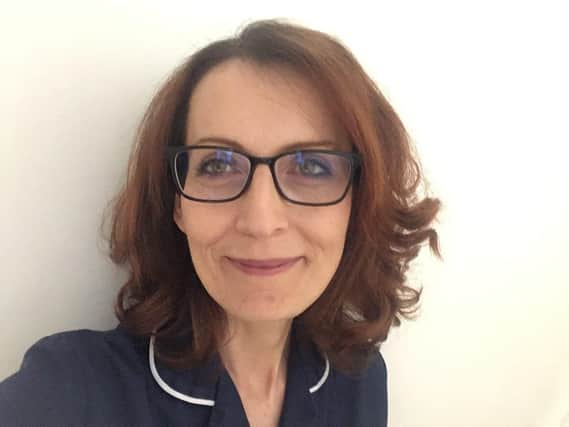Health: How lifestyle "medicine" can help you to feel better


From my perspective as a nurse in general practice, I see patients’ frustration and unhappiness on an daily basis and I strive to give them tools to empower them to take back some control over their own health.
What, when, and how we eat, how much we move, how we sleep, how we breath, and how we manage stress, as well as our exposure to toxic substances, can all have an enormous impact on our day to day physical and mental health.
Advertisement
Hide AdAdvertisement
Hide AdNearly everyone, whatever their circumstances, has it in their power to make some kind of small changes and potentially influence their health outcomes.
Science has discovered that how we nurture the trillions of bugs in our gut can affect our immune system, our risk of cardiovascular disease, type 2 diabetes, high blood pressure and obesity, as well as our risk of other conditions such as cancer, dementia and depression/anxiety.
Gut bugs love fibre and diversity. Therefore if we just eat some more plants, and a variety of plants, we are helping our gut to look after us better.
You don’t need fancy or expensive plants. Apples, carrots, cabbage, peppers, berries, beans, nuts, whole grains - whatever you like.
Advertisement
Hide AdAdvertisement
Hide AdAnd they can be fresh, frozen or tinned! More “real” food, and fewer ready meals and junk foods, will keep your bugs even happier.
The amount and quality of sleep we get is fundamental to our health and long term risk of disease.
Just going to bed 15 minutes earlier each night could reduce your risk of cardiovascular disease.
Altering the timing of your caffeine intake (tea as well as coffee) can improve the quality of your sleep and make it more refreshing and restorative, whilst also reducing your risk of long term conditions such as type 2 diabetes, hypertension and dementia.
Advertisement
Hide AdAdvertisement
Hide AdTaking 5 or 10 minutes each day to practice some breathing exercises, or just trying to breathe through your nose rather than your mouth, can potentially reduce stress and anxiety, and lower blood pressure.
Reducing stress lowers the risk of many chronic diseases, and activities such as yoga, meditation and mindfulness can also contribute to good health.
Moving our bodies is probably one of the most powerful tools we have for improving our health.
This doesn’t need to be the gym, it could literally be walking to the end of your road, or just standing up more!
Advertisement
Hide AdAdvertisement
Hide AdIf it’s more than you normally do, it will be reducing your risks of disease whilst improving mobility, reducing risk of falls and building muscle.
I love talking to patients about ways to empower themselves. What small change could you make today?